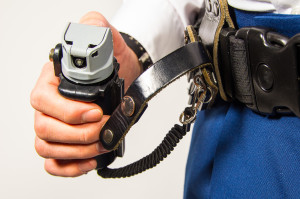Mental health expert witnesses debated the sanity of the ex-marine charged with shooting “American Sniper” author Chris Kyle in the closing stages of the murder trial this week. As the trial of Eddie Ray Routh moves closer to conclusion, both sides presented mental health experts to discuss the defendant’s insanity defense.
Ex-Marine on Trial for American Sniper Murder
The Chris Kyle story had gained significant attention nationwide due to the Oscar-nominated film based on his autobiography, and Routh’s murder trial has earned similar profile. It is undisputed that on February 2nd, 2013 Routh fatally shot Kyle and his companion, Chad Littlefield, at the Rough Creek Ranch-Lodge-Resort shooting range in Erath County, Texas. Routh was taken into custody almost immediately after the shooting, and has plead not guilty by reason of insanity to the two counts of capital murder that he has been charged with. The case has been delayed during the investigation stages, but finally went to trial on February 11th, 2015 with prosecutors seeking a sentence of life in prison without parole for the two killings.
With Routh’s mental state in question, a bulk of the trial has involved testimony from friends and family of the defendant who claim that he had become increasingly erratic in the days and weeks leading up to the shooting due to his mental illness. Supplementing the testimony of Routh’s family and friends, defense attorneys concluded their case by calling Dr. Mitchell H. Dunn to testify that the defendant suffered from schizophrenia that clouded his judgment to the point of insanity.
Defense Expert Witness Testifies to Insanity Plea
Dr. Dunn took the stand earlier this week to tell jurors about Routh’s state of mind at the shooting in an effort to support the defense team’s argument for not guilty by reason of insanity. According to Dunn, Routh did not suffer from PTSD, but instead was crippled by paranoid schizophrenia that induced hallucinations and a belief that hybrid “pig people” were trying to kill him and take over the world.
Dr. Dunn spent more than six hours interviewing Routh last year while the defendant was in jail, and concluded that the psychosis started in mid-2011 when Routh was hospitalized for complaining that he was being eaten alive by a giant tapeworm. Over the next two years, Routh’s psychosis allegedly caused him to have delusions that two of his co-workers were cannibals who wanted to eat him, and that the heater in his workroom was a large human rotisserie. Only eight days before the shooting, Routh was released from treatment by a Veterans Affairs hospital, despite objections by his mother who believed the defendant was a danger to himself or others due to his mental illness.
In regards to the killings, Dr. Dunn testified that Routh thought he felt threatened after meeting Littlefield and Kyle at the shooting range. Dr. Dunn said that Routh “thought he was going to die if he didn’t take care of business and kill them first. It was logical in his mind. None of us would have thought that, but he did.” Stating that Routh’s psychosis caused him to believe that he was in mortal danger, Dr. Dunn told the jury that, in his expert opinion, the defendant met the requirements for legal insanity.
Prosecutors Argue American Sniper Murder Defendant is Sane
The day after Dr. Dunn took the stand as an expert witness for the defense, prosecutors called two rebuttal experts to testify that Eddie Ray Routh was not legally insane when he shot and killed American Sniper author Chris Kyle and another man in February of 2013. According to Dr. Randall Price, a forensic psychologist who spent a total of 10 – 11 hours with Routh in two separate jailhouse interviews and reviewed the defendant’s medical history extensively, Routh had a paranoid disorder that was exacerbated by his use of marijuana and alcohol, but was not delusional. Dr. Price testified that Routh “did know what he was doing was wrong, and he did it anyway,” and accused the defendant of “setting the stage” for an insanity defense by taking an idea of pig people from an episode of “Seinfeld” that Routh saw while in prison.
Another medical expert, Dr. Michael Arambula, reinforced Dr. Price’s findings and testified that the defendant’s use of marijuana and alcohol at the time of the shooting rendered his insanity defense useless. Dr. Arambula, a forensic psychiatrist and former pharmacist, testified that Routh “was intoxicated at the time of the offense … [and] any time intoxication is present, the game is over.” Like Dr. Price, Dr. Arambula was unconvinced by Dr. Dunn’s testimony that Routh was delusional at the time of the shooting, but instead testified that the defendant’s use of drugs and alcohol contributed more to his actions than mental illness.
The trial of Eddie Ray Routh will go to jury next week. If Routh is convicted, he will face life in prison, but if jurors believe that he was legally insane he will be committed to a mental facility instead.












